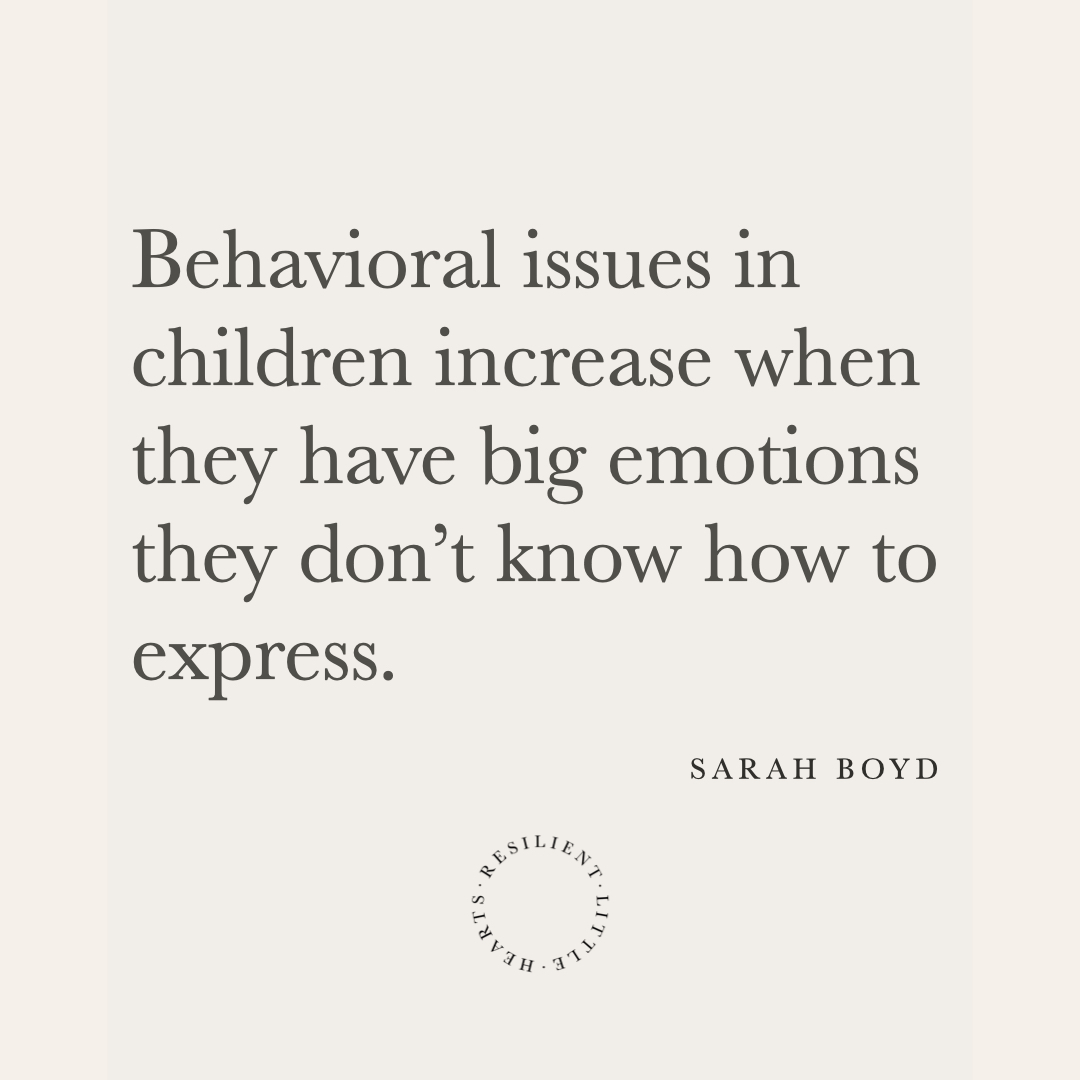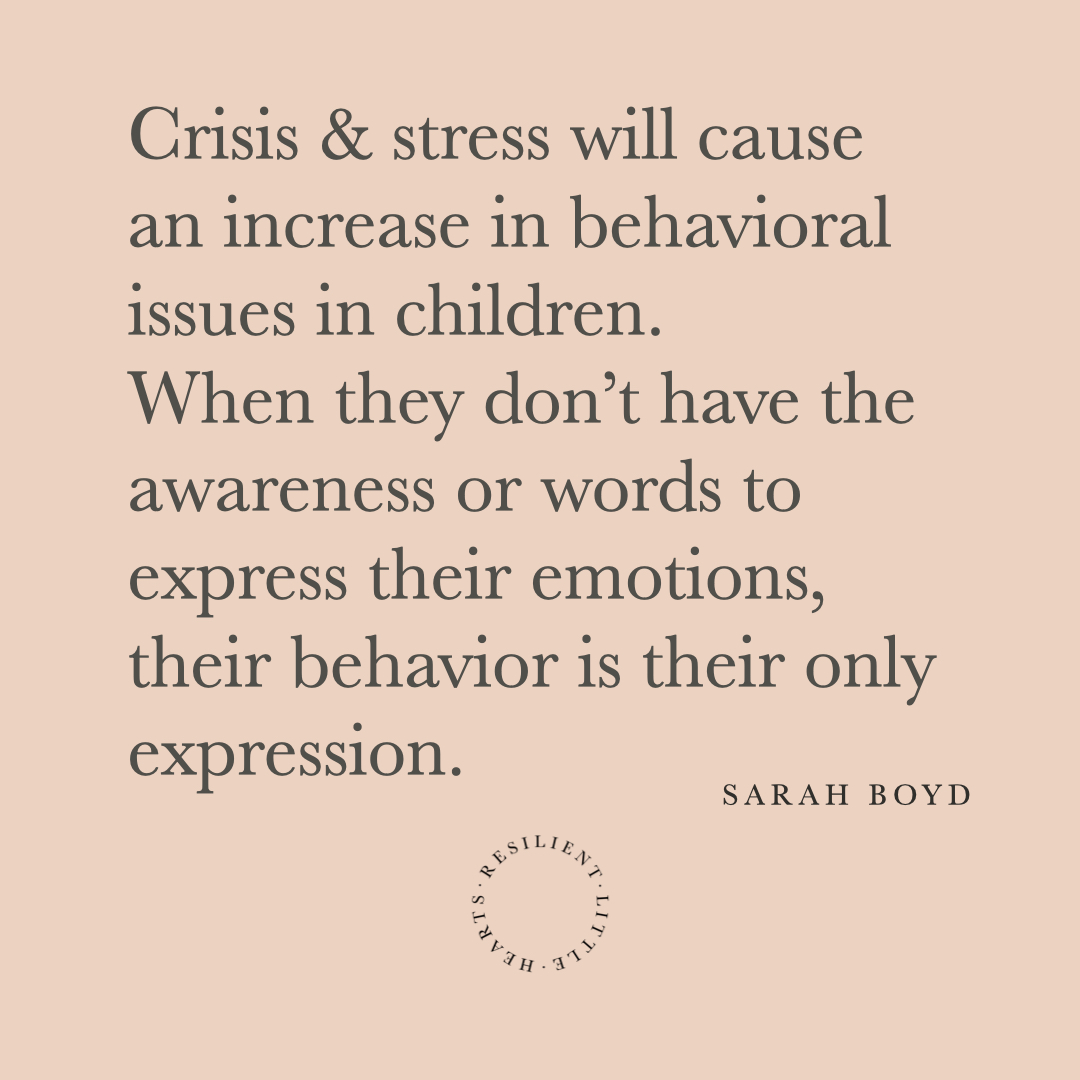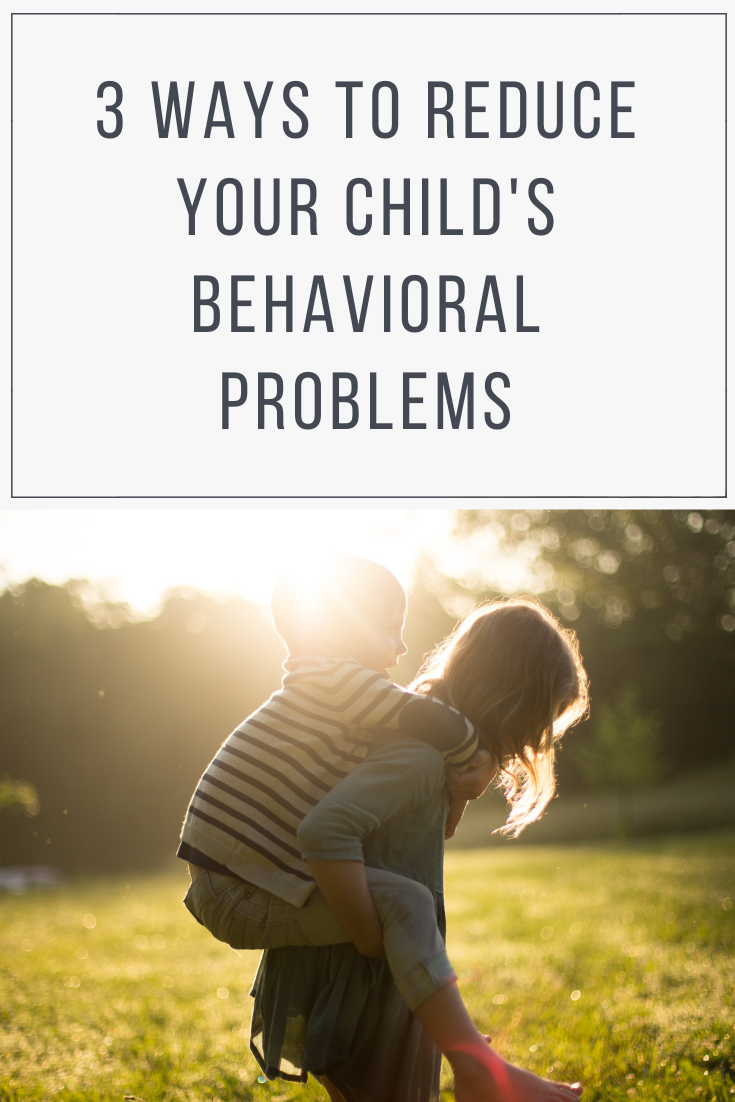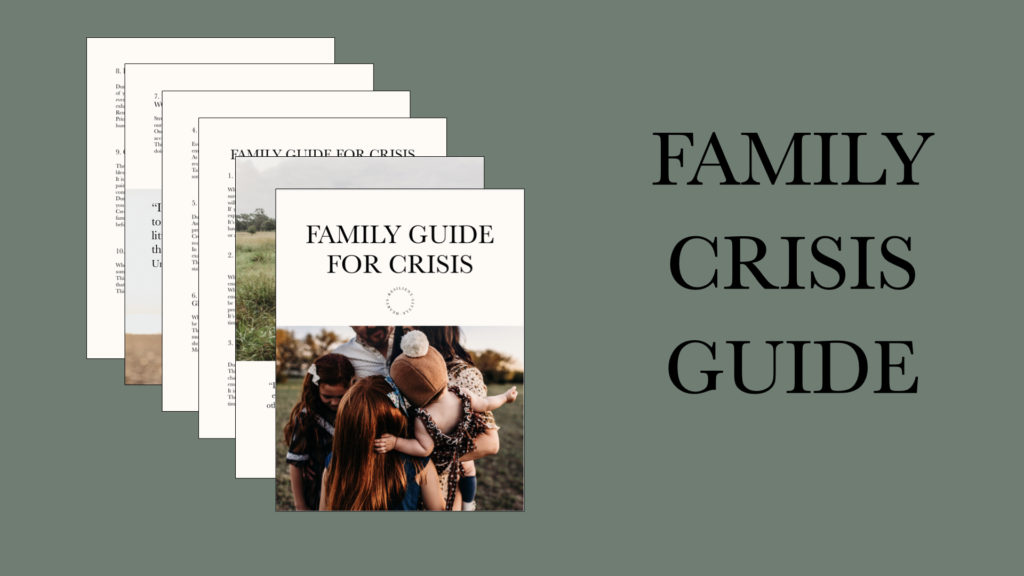3 Ways To Reduce Your Child’s Behavioral Problems
Behavioral issues with children can occur for many reasons such as a lack of clear boundaries, emotional regulation issues, or if they have additional needs.
Behavioral issues will also increase when your child is going through high stress, major change, crisis or grief.
Crisis, stress & uncertainty cause a lot of big emotions in both adults & children.
But children (especially under the age of around 10 years old) often don’t have the awareness, or the language to appropriately express their feelings.
Their behavior is an expression of their emotions.


BEHAVIORAL CHALLENGES
Behavioral challenges could look like an increase in behavior such as:
- Whining
- Crying
- Back talking
- Not listening
- Meltdowns & tantrums
- Anger & aggressive outbursts
- Fighting nap times & bedtimes
- Bickering with siblings
- Defiance to anything you ask
- High emotional reactivity
- Overly hyperactive & unable to focus
- Anxious, avoidant or clingy behavior
When a child is experiencing feelings of lack of control, they will usually grab more strongly onto what does gives them a feeling of control.
That is why you will often experience more power struggles with your child during times of heightened stress.
For younger children in particular, when they feel out of control, there are only 3 main areas they still have control:
- Eating
- Sleeping
- Going to the potty
At times of high stress it is very normal to notice a regression in these areas with your child.
This could look like:
- Resistance or temper tantrums over eating certain foods
- Resistance to going to bed at night or having a nap
- Nightmares
- Sleep disturbances
- Bed wetting or ‘accidents’
These power struggles many seem like they are about eating, sleeping or using the potty; but they’re actually a sign that your child isn’t feeling ok.
If you only focus on the behavior, you will only manage the symptoms & miss the cause.
The cause of many of these behaviors is big emotions they don’t know how to express.
In order to support your child through stress, crisis or grief, it is important that you help them find an appropriate expression for their emotions.
HOW TO HELP YOUR CHILD EXPRESS THEIR EMOTIONS
Talking about our feelings is one of the healthiest ways to express our emotions.
Taking time to talk to your child about their feelings is not only going to help them navigate the current situation they are going through, it is teaching them for future situations that it is ok to talk about how they feel.
Some simple questions are –
“How are you feeling?”
“You don’t seem your normal self, are you ok?”
Or you can bring up the topic yourself –
“I know that this situation makes me feel like _________, how does it make you feel?”
Many times children will find talking face to face with a parent a little overwhelming, so it can often increase the openness of the conversation by involving activity.
This could mean playing toys together on the floor before you start the conversation, or going for a walk together, or driving in the car together.
Especially for older children & adolescents, the side-by-side stance is less intimidating to open up a hard conversation.
One of the limitations with ‘talking’ as an expression of emotions is that children, especially younger children, often do not have the awareness or the language to articulate their feelings.
It’s important to remember that ‘talking’ is just one of the healthy ways we can express our emotions.
Play is another healthy way to express our emotions, & is particularly helpful for younger children.
Creative play is not only a pathway of expression of emotions, it is also how children learn to navigate emotions in a healthy way.
Younger children express their emotions through role-playing & imaginative play;
through drawing pictures & making things with their hands.
They learn about navigating emotions through reading books & hearing stories.
Older children express their emotions through journalling, creative writing, art or music.
They learn about navigating emotions through reading books & hearing stories.
Some ideas to encourage your child to express their emotions through play –
- Ask them to draw a picture of how they feel, using colors to describe it
- Play make-believe with your younger child & let them lead the story
- Give them a special journal where they can write their feelings down confidentially
- Increase opportunity for creative play – crafts, painting, cutting & sticking
- Involve your child in cooking or baking food
- Tell your child stories of when you went through the same struggle when you were younger & how you dealt with it
- Give them a creative writing assignment where they have to create a short story
- Find children’s books that talk about the challenge your child is currently going through & how to navigate it (check out our children’s book – The Boy Who Stood Up Tall – if your child is struggling with fear, CLICK HERE ).
We hold emotions inside our bodies & experience them as physical sensations.
Another healthy expression of emotions is physical grounding activities.
When you child won’t talk about their feelings, do not underestimate the impact of physically sitting with them through the sensations.
Grounding activities could be:
- Physical exercise – walking or running
- Hugs
- Being outside & getting fresh air
- Breathing exercises
- Hot bath or shower
- Dim lighting
- Calm music
- Weighted blankets
(For further resources on tools to decrease physical anxiety, check out our BRAVE e-book for parents, CLICK HERE )
When your child is going through stress, crisis or grief it is important to remember that the situation is temporary – it will eventually pass.
One of the best things you can do is to support them to express their emotions in a healthy way.
Remember that they are looking for a safe place. So give them some grace & don’t become nit-picky about every little thing. Increase your love & connection with them.
None of us are our ‘best self’s’ when we’re under stress or in a crisis. This is why it’s so important to love someone a little extra on their bad days.

Despite all your best intentions & efforts, some behavioral issues will usually continue until the stress resolves.
So take some extra deep breaths & remember:
There’s nothing wrong with your child
There’s nothing wrong with your parenting
Together, you can get through this…












